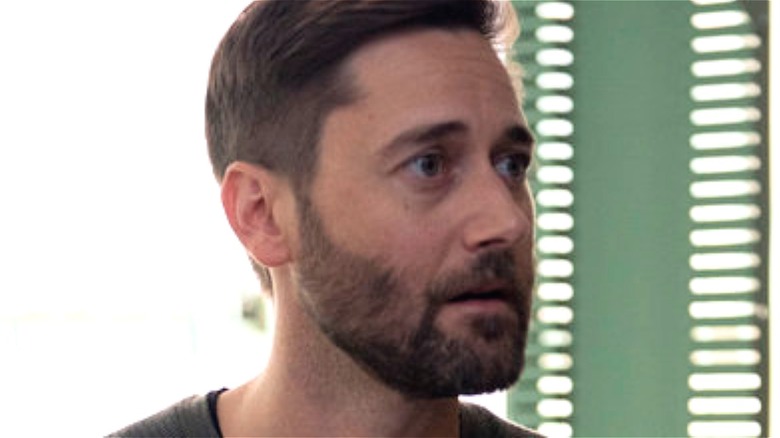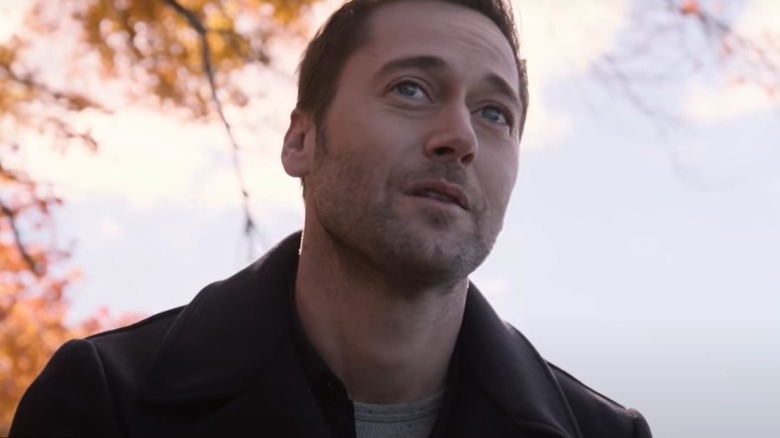What New Amsterdam Fans Find So Unrealistic About The Show
In 2018, the NBC medical drama "New Amsterdam" introduced viewers to the doctors working tirelessly at the titular hospital in New York. A fictionalized look into the daily struggles of life at a public hospital, the series follows protagonist Dr. Max Goodwin (Ryan Eggold) as he simultaneously inspires and puzzles a core ensemble of brilliant surgeons. During this time, Goodwin encourages his colleagues to ignore bureaucratic entanglements and focus on "big ideas" that can change the medical industry.
Throughout its run, the show has received mixed reviews from critics, many of whom question the validity of its storytelling, particularly when it comes to medicine (via Rotten Tomatoes). In a 2018 piece for The Atlantic, Brit Trogen explained, "The current state of medicine is a topic ripe for incisive critique and could offer fodder for meaningful TV drama. Unfortunately, the NBC series grossly oversimplifies the issues it portrays and leans into hero worship, which may lead viewers to troubling — even dangerous — conclusions about health care."
Notably, however, not all medical professionals appear to agree with this assessment. In 2021, Christopher Bailey, the Arts and Health lead at WHO, sent a letter to the "New Amsterdam" team thanking them for their creative work, writing, "[P]erhaps the most important aspect of the show, an aspect of health that we hold centrally to our mission, is the 'person centered' approach to health the show takes" (via Deadline).
In light of these conflicting perspectives, it is far from surprising that viewers similarly debate the plotlines of the series. Continue reading below to learn more about what fans find so unrealistic about "New Amsterdam."
Fans consider Max's actions in the hospital to be largely unrealistic
In a "New Amsterdam" Reddit thread, u/Frauenquote called into question the practicality of Max's goals, writing, "It's annoyingly [unrealistic] how Max changes the hospital's entire agenda every single episode." The same user added that the show's repetition has, ultimately, become tedious — particularly because patients only appear to exist to draw Max's attention to the blatant inequities within healthcare. In many episodes, Max somehow manages to supersede any and all obstacles and rework the hospital's errors, often within an expedited amount of time. U/ViolettheJerseyNun agreed, noting that while they were usually willing to suspend disbelief when watching fictional narratives, the show had (for them) pushed that suspension to the breaking point.
In contrast, some Redditors acknowledged the idealism of Max's actions, but also lauded the series for raising awareness about critical systemic flaws. As u/ParkMan73 argued, the series isn't solely focused on realism, but is also "trying to provoke thought." The user explained that while the show is knowingly unrealistic, [its] goal is to paint a picture of the sorts of changes that should be made in the real health care system, and thus broaden the Overton Window. Emphasizing the same point, u/AnmlBri wrote that, "Max's solutions to problems may not all be feasible, but at least they're ideas, and they just might be starting points that inspire something more realistic for someone in the real world."
In the end, it appears that the way "New Amsterdam" approaches its storytelling is similar to Max's overall exploits –- it motives some, and mystifies others.

